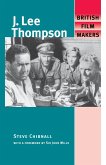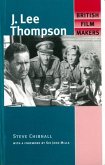
Broschiertes Buch
31. August 2013
Manchester University Press
| eBook, ePUB | 22,95 € | |
| eBook, PDF | 21,95 € |

22,95 €
Sofort per Download lieferbar
21,95 €
Sofort per Download lieferbar
Broschiertes Buch
A new approach to British cinema of the 1950s
2009
VDM Verlag Dr. Müller
Ähnlichkeitssuche: Fact®Finder von OMIKRON
